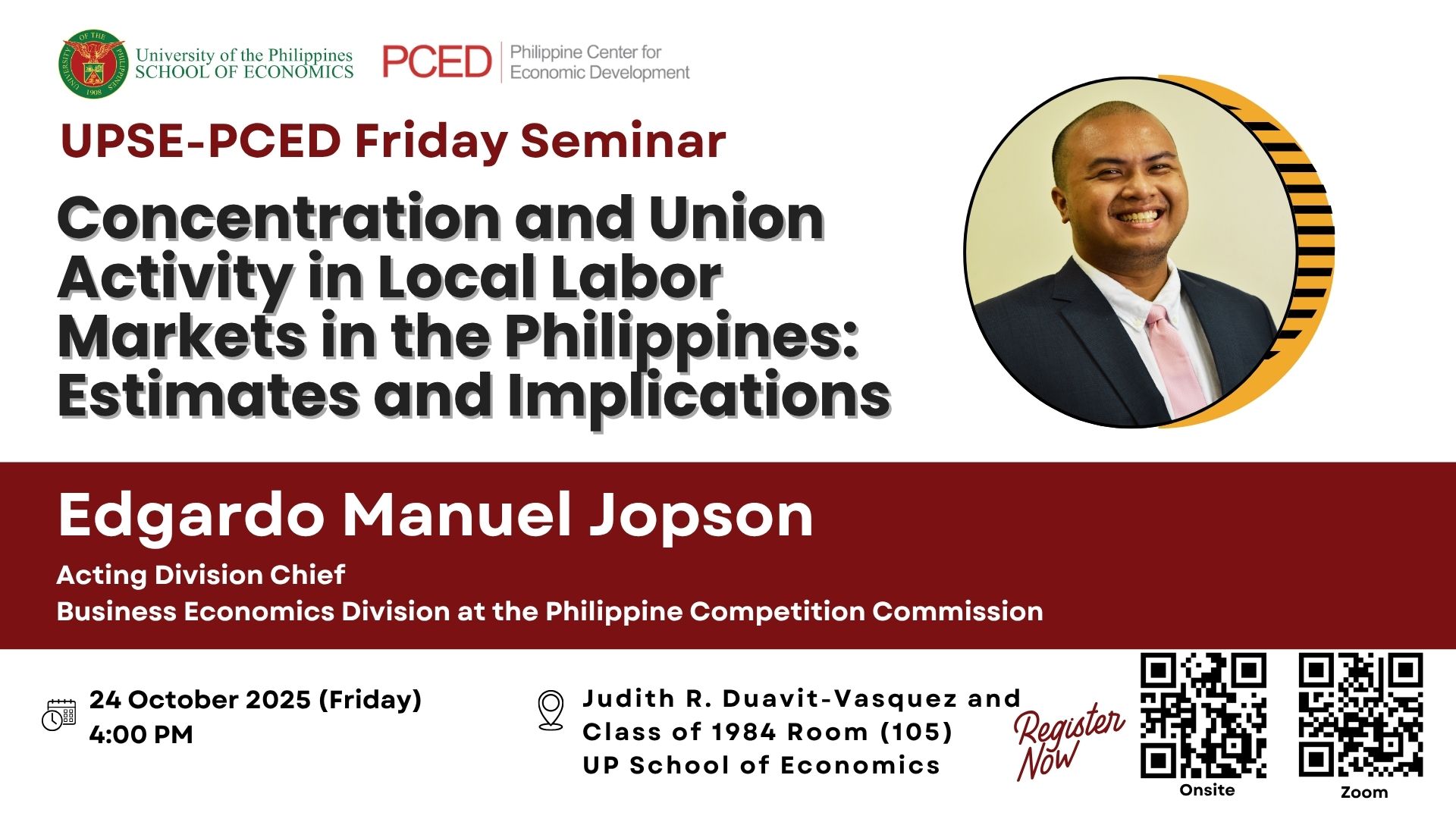ABSTRACT
Workers’ representation may counterbalance the inherent term-setting power of firms in labor markets. Do we observe less union activity in labor markets where employment is more concentrated? We address this question and estimate unionization and bargaining outcomes across broadly aggregated local labor markets using two register data sources from the Philippines—an establishment-level census and a union registration database. Results from logistic regression models suggest that labor market concentration is negatively associated with new union registrations and new collective agreements signed. Further, concentration is also associated with lower union membership densities. Challenging the notion that union activity is higher in concentrated markets where “excess rents” are presumably larger, these results highlight the challenges for organizing and bargaining in contexts where only a handful of firms dominate employment. For antitrust authorities, a closer look at input labor markets during merger reviews and enforcement activities is a promising way forward.
————————————————–
The Economics Research Center is pleased to announce its full lineup of speakers from September to December 2025.
OCTOBER
1 – Yasuyuki Sawada (UTokyo/former ADB chief economist)
10 – Liliana Sousa (World Bank)
17 – Ann delos Angeles (UPSE/REECS)
24 – Edgardo Jopson (PCC)
NOVEMBER
5 – Chetan Ghate (Inst. of Econ. Growth)
7 – PES Conference
14 – Jestoni Olivo (PCC)
21 – Joseph Capuno (DepDev/UPSE)
28 – Enrico Trinidad (DepDev)
DECEMBER
5 – Mike Abrigo (PIDS)
12 – Adrian Mendoza (UPSE)
19 – Christmas Break



